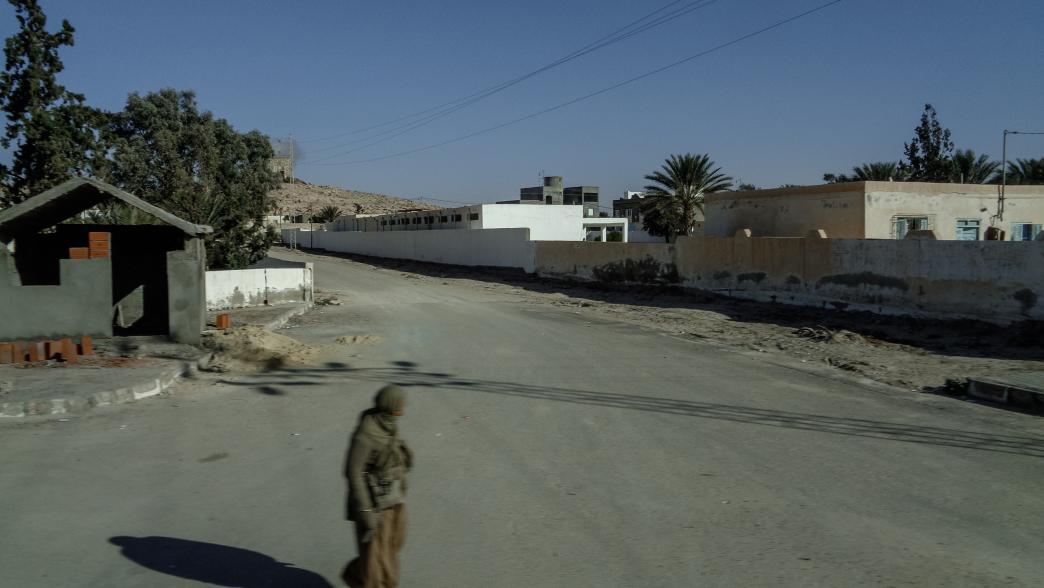
Uncovering the Impacts of Phosphate Mining on Tunisian Women
Phosphate mining has long served as an important component of Tunisia’s economy—phosphate rock is used domestically to produce fertilizer and is also a valuable export. But some regions that are richest in phosphate reserves are also some of the most marginalized. Citizens in these regions’ say the government doesn’t provide them with the political voice and economic opportunities they seek, and that the state-owned Gafsa Phosphate Company (CPG) uses opaque recruitment processes that does not offer locals a clear path to working for the industry’s biggest employer.
In 2008, citizens in the phosphate-producing region of Gafsa organized protests against this marginalization and suffered a government crackdown. Called the “Mining Basin uprising,” the unrest seriously disrupted phosphate production, and nearly a decade later unrest continues to sporadically erupt over many of the issues that caused the initial protests—low employment, weak regional development, inadequate mitigation of the negative environmental impact of phosphate production, and the inequitable distribution of phosphate revenues. The cost of the unrest is considerable, with phosphate production falling from 8 million tons in 2010 to 3.1 million tons in 2017. Government officials blame protestors for the decrease in CPG’s activity. However, the root problems that caused the discontent remain unaddressed in a systematic manner. Gafsa still lacks basic public services and infrastructure, and the unemployment rate remains the second highest in the country, at 28.2 percent against a national rate of 15.6 percent in 2016.
While natural resource-related discontent in Gafsa remains largely unaddressed by policy-makers and underreported by the media—leading to a lack of awareness amongst the Tunisian public and international donors—even more underreported are the disproportionate negative effects that phosphate production has on women. To begin understanding these gendered effects, the Natural Resource Governance Institute (NRGI) held a consultative meeting with female activists in Gafsa on 28 December. The key findings from the consultation revolve around three themes: employment, health, and pollution and infrastructure.
Employment
While the lack of employment opportunities is a major issue for all populations in Gafsa, it disproportionately affects women. The region’s unemployment rate amongst female university graduates is 54 percent while it is 27 percent amongst male graduates. This disparity holds when it comes to the ratio of women to men employed at CPG and affiliated institutions. Additionally, most of the women employed by the company are cleaners—this despite the region’s high percentage of female university graduates. (Forty-seven percent of all Gafsa women hold a university degree.)
Health
Phosphate production has negative health effects on Gafsa’s population as a whole, according to activists, who say that women disproportionately suffer: They experience a high rate of miscarriages, as well as neonatal problems that go untreated due to a lack of services in the area. Activist Nawwara Bedhief, president of Sanad, states that “seven percent of children in the Mining Basin region of Mdhilla are born with birth defects due to women’s exposure to uranium present in phosphate deposits.” Consultation participants also cited negative psychological effects from phosphate production. For example, water and air pollution caused by the production causes damage to women’s skin, teeth and hair (leading to decreased self-esteem and confidence).
Pollution and infrastructure
Phosphate production leads to a high level of dust and air pollution. Dusting and cleaning is the responsibility of women in Gafsa’s households, and the chore is made especially arduous by the added phosphate dust and grime; women are forced to spend time, effort and money cleaning that could be used on leisure, education and other pursuits. Cleaning is made even more difficult by water shortages, which is a direct result of phosphate production. Activist and human rights advocate Mannena Zitouni said that water is “scarce, undrinkable, and of very poor quality.”
Promoting evidence-based, local responses to gender impacts
The main takeaways from NRGI’s meeting with female stakeholders revolved around two themes for further action.
Empowering local civil society to play a more concerted and coordinated role in demanding inclusion in decision-making
Local civil society actors must consolidate their efforts so that they can present a unified set of demands for inclusion in decision-making processes related to phosphate’s negative impacts. Local civil society organizations stand to benefit from their inclusion in the NRGI-supported Tunisian Coalition for Transparency in Energy and Mines (CTTEM), or from opening a direct line of communication with its regional coordinator (either of which could help elevate their demands and recommendations to the national level).
Supporting evidence-based advocacy through the commissioning of studies on phosphate’s environmental and societal impacts in the region
Civil society actors’ effectiveness in influencing decision-making is only possible if they can rely on informed, evidence-based accounts of impacts. Though anecdotal evidence abounds, there is a serious dearth of rigorous studies that definitively link phosphate mining to the various problems that are affecting citizens in Gafsa. NRGI is helping to address this by supporting its local partner and CTTEM regional coordinator—Association Bassin Minier pour l’Investissement et le Développement (ABMID)—to undertake a study on the environmental impacts of phosphate production. The study will gather and present data on the various environmental and health effects of phosphate extraction and has the potential to spark an informed debate on the government’s and other actors’ roles in mitigating phosphate-related damage and providing compensation. Many more studies of this kind need to be commissioned.
Authors

Hanen Keskes
Middle East and North Africa Senior Officer

